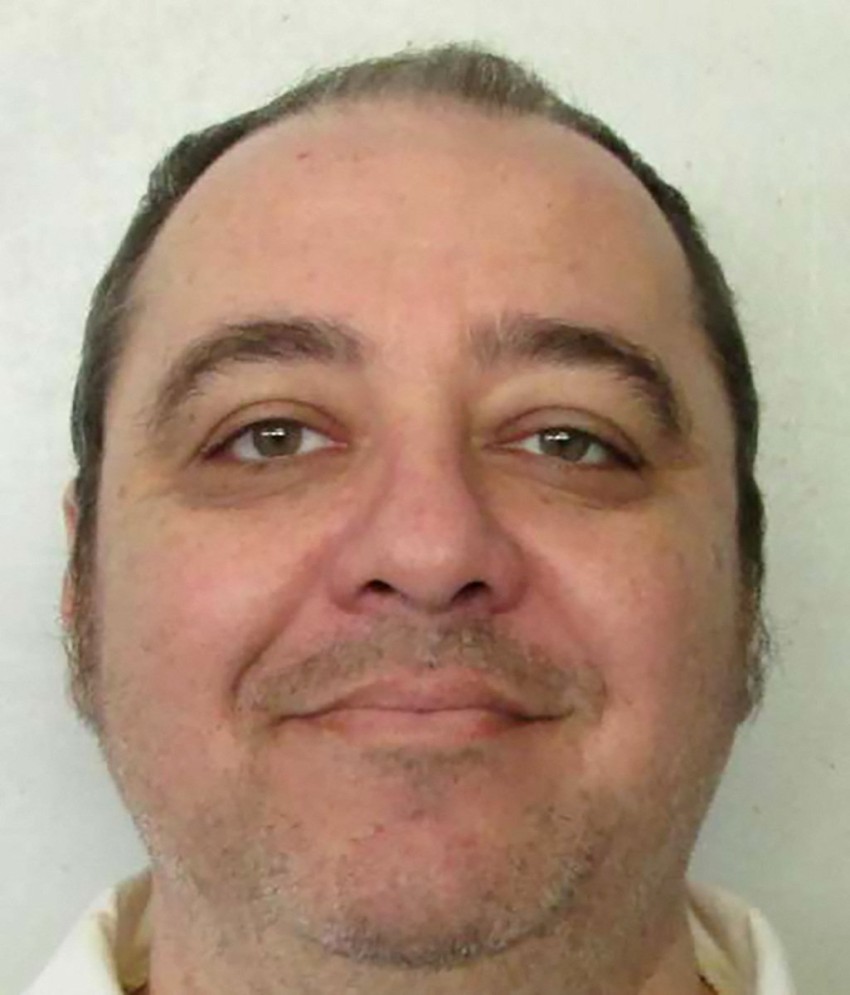
WASHINGTON — Catholic leaders spoke out against Alabama’s Jan. 25 execution of death row inmate Kenneth Smith by nitrogen gas, which was the first time this method was used in the United States.
“Tonight’s experimental execution of Kenny Smith by nitrogen hypoxia did nothing to make our communities safer. It proved only one thing: Alabama was hellbent on killing Kenny Smith,” said Krisanne Vaillancourt Murphy, executive director of Catholic Mobilizing Network, a group that works to end the use of the death penalty in the United States.
“People from all over the globe are watching Alabama tonight. Regretfully, what they saw was an act of barbarism,” she said in a Jan. 25 statement.
Smith, 58, was convicted in the 1988 murder-for-hire death of Elizabeth Sennett by her husband, an Alabama pastor, and has been on death row for more than 30 years. Two years ago, the state failed in its attempt to execute him by lethal injection. His case was retried in 1996 and a jury in an 11-1 vote recommended a life sentence without parole but a judge overruled this and sentenced Smith to death.
The Supreme Court denied Smith’s last-minute appeal to halt the execution Jan. 25. His attorneys said the state was making him the test subject for an experimental execution method that could violate the constitutional ban on cruel and unusual punishment. Federal courts had already rejected Smith’s bid to block his execution.
Justices Sonia Sotomayor, Ketanji Brown Jackson, and Elena Kagan dissented from the court’s decision.
Sotomayor said she was dissenting with “deep sadness, but commitment to the Eighth Amendment’s protection against cruel and unusual punishment.” She also noted that the method that was being used in Smith’s execution was “untested.”
“Having failed to kill Smith on its first attempt, Alabama has selected him as its ‘guinea pig’ to test a method of execution never attempted before,” she wrote. “The world is watching. This Court yet again permits Alabama to ‘experiment … with a human life.’ ”
Sister Helen Prejean, a Sister of St. Joseph and longtime death penalty opponent, quoted some of Sotomayor’s dissent on social media.
She also quoted Judge Jill Pryor of the 11th Circuit who dissented on the federal court’s decision to execute Smith with the use of nitrogen gas. “The cost, I fear, will be Mr. Smith’s human dignity, and ours,” she wrote.
Officials said Smith was pronounced dead at 8:25 p.m. at an Alabama prison after breathing pure nitrogen gas through a face mask to cause oxygen deprivation. The execution took about 22 minutes. The Associated Press reported that for at least two minutes, Smith appeared to shake and writhe on the gurney, sometimes pulling against the restraints.
In a final statement, he said: “Tonight Alabama causes humanity to take a step backwards. … I’m leaving with love, peace, and light.”
Smith’s spiritual adviser, the Rev. Jeff Hood, told reporters after the execution that it was “the most horrible thing I’ve ever seen.”
“We didn’t see somebody go unconscious in 30 seconds. What we saw was minutes of someone struggling for their life,” said Hood, a Baptist pastor and activist in Little Rock, Arkansas.
“An unbelievable evil was unleashed tonight,” he added.
After the execution, Vaillancourt Murphy said: “Tonight we mourn the deaths of two people whose lives were unfairly taken from them in an act of violence: Elizabeth Sennett and Kenny Smith.” She said the nation’s prayers and actions “should be working toward embracing justice solutions that aren’t rooted in revenge. The pursuit of death in the name of justice must end.”
And in a post on X, formerly Twitter, the Catholic Mobilizing Network said Smith’s execution “will send ripple effects of harm far beyond the gurney he lays on. We pray for his family, his victim’s family, the prison staff, the witnesses, and each of us.”
Three states — Alabama, Mississippi, and Oklahoma — have authorized nitrogen hypoxia as an execution method, but no state had used it until now. The execution method calls for placing a respirator-type face mask over the inmate’s nose and mouth to replace breathable air with nitrogen, causing the person to die from lack of oxygen.
When Oklahoma’s legislature passed the use of this method in 2018, Sister Prejean said the decision “ignores the unavoidable truths that there is no humane way to kill a conscious, thinking human being, and that the entire apparatus of capital punishment is deeply flawed and deeply wounding to us all.”
Earlier this month, the United Nations Human Rights Council cautioned against using nitrogen gas in executions, saying it would violate the prohibition on torture and other cruel, inhuman, or degrading punishment. They also said it would “result in a painful and humiliating death.”
